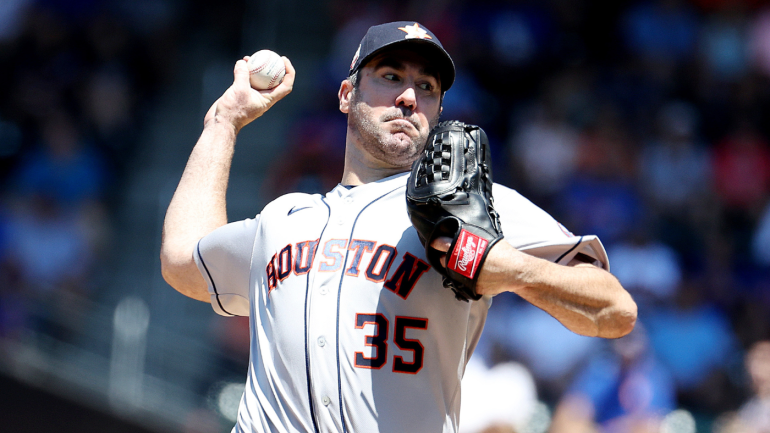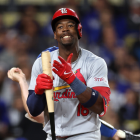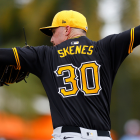
Free-agent right-hander Justin Verlander is favored to win his third American League Cy Young Award on Wednesday night, defeating youngsters Dylan Cease and Alek Manoah in the process. Win or lose, it appears that Verlander is pursuing a blockbuster contract similar to the one that Max Scherzer inked last winter, a two-year pact (with an option) worth more than $40 million annually.
Houston Astros owner Jim Crane told MLB.com as much on Tuesday night, noting that he intends to remain in the "middle" until Verlander makes his decision.
"I know him well, so we've been pretty candid," Crane said. "He's looking at the comp, which I think there's only one or two. … J.V.'s probably got a few years left, and he wants to make the most of it. I think he's going to test the market on that."
Verlander seeking a Scherzer-like deal shouldn't come as too big of a surprise. We here at CBS Sports suggested as much when we ranked Verlander as the sixth best free agent available this winter. Here's what we wrote at the time:
Verlander had a most remarkable season. Remember back in the spring, when it was unclear how well or how much he'd pitch after missing most of the last two seasons because of Tommy John surgery? He put those concerns out to pasture in a hurry, starting 27 times and performing well enough to compete for a third career Cy Young Award. And he did this at a time when he's nearing his 40th birthday. Verlander has lived a charmed life in many respects, no doubt, but it's admirable that he's maintained this kind of work ethic and passion for the game despite having accomplished almost everything that a pitcher can accomplish. He could've walked away and waited on his call from Cooperstown. That he instead put in the effort to come back this good is an impressive feat, and one that helps to explain the success he's had throughout his career. He declined a one-year option worth $25 million. He should net more money.
Scherzer's deal, for those wondering, guaranteed him more than $86 million. That pact gave him the highest average annual value in Major League Baseball history, crushing the previous record (held by Gerrit Cole) by more than $7 million.






















